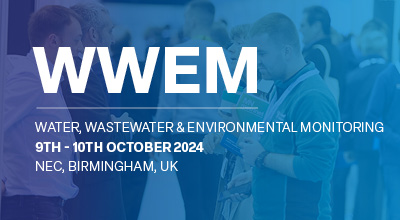| Abstract Title: | Effects of irrigation with reclaimed municipal wastewater on soil fertility |
| Presenter Name: | Dr María Remedios Romero-Aranda |
| Co-authors/Co-presenters: | Ms Desiré Muñoz-Sánchez Prof Desiré Muñoz-Sánchez Ms Ana Gloria Romero-Sanz |
| Company/Organisation: | IHSM-La Mayora, Consejo Superior de Investigaciones Científicas (CSIC) |
| Country: | Spain |
Abstract Information :
Concerns about efficient water use is an important subject at the global level and in Europe, as reflected in relevant strategic documents, such as the Green Deal, the New Circular Economy Action Plan, and others. Water reuse is commonly and successfully practiced in several countries outside Europe, such as Israel, California, Australia, and Singapore. However, this practice is so far deployed below its potential in the EU. According to Water Reuse Europe, only 2% of treated wastewater is reused. More than 40,000 million of m3 of wastewater are treated in EU every year, but only 964 million of m3 of this treated wastewater is reused (1). These figures are expected to grow in the future, with the biggest potential for reuse in Portugal and Spain. The use of reclaimed water has a huge potential for complementing conventional water resources needed in agriculture production–the backbone for stable food supply in Europe. Agriculture accounts for 40-60% of total water consumption in Europe; most of it is used for irrigation. In southern Member States, agricultural water abstraction accounts for approximately 80% of total water abstraction (2). Soil enzyme activities are closely related to soil properties and are widely used as important indicators of soil quality (3). Therefore, understanding the interactive effects of irrigation with reclaimed waste water on soil enzymes, as indicators of soil fertility, is of great importance to guaranty the agriculture sustainability in arid regions as Southeast Spain. Thus, the aim of our study was to determine the effects on soil fertility when using for irrigation reclaimed wastewater from the municipal EDAR of Algarrobo, a town in Málaga province at Southeast Spain. The study was developed during one year, using 60-liter capacity pots filled with soil from a local farm, which allowed to recover lixiviates for further chemical analysis. Three times a week, 20 pots were fertigated with nutrient solution made with local water supplied by the community of growers of Algarrobo, that was used as control reference, and 20 pots were fertigated with nutrient solution made with reclaimed waste water from the EDAR of Algarrobo. Every two weeks, the pH and EC were recorded in soil extracts and lixiviates. Also, the content of macronutrients, micronutrients and Na+ and Cl- were measured in soil extracts and pot’s lixiviates. Indices for soil water infiltration capacity (RAS, PSI and CROSS) were calculated. Data are discused in relation to deshidrogenase, urease, B-glucosidase, and fosfatase enzymatic activities.


